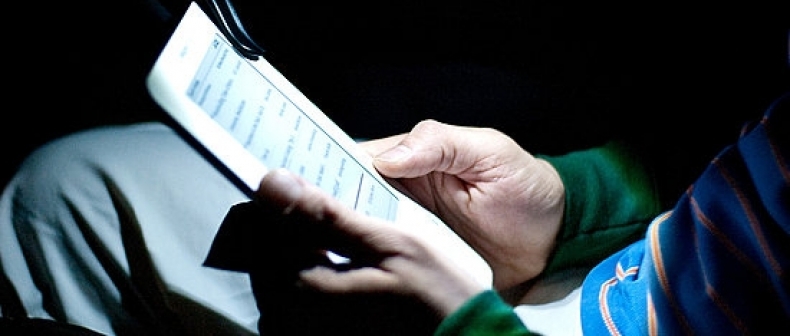
Of the many images one might choose to represent the state of modern art and entertainment, the used video game store is probably low on the list. Often dingy, claustrophobic and filled with far more Call of Duty than Ico or Okami, one’s local Gamestop doesn’t exactly scream “bastion of our cultural heritage”.
Nonetheless, recent rumours suggest that the used game store may be under threat, and they are reason for pause. The as-of-yet unsubstantiated chatter is this: Microsoft and Sony’s upcoming game consoles will prevent or complicate the play of used games. Naturally, it’s an issue of specific interest to gamers, who are up in arms at the mere whisper of the idea. But it’s also relevant to anyone who engages with digital media, whether books or movies or music. To wit, what does it mean to own a copy of The Godfather or A Fine Balance when it’s composed of digital ones and zeros?
It’s a topic that has become well-worn territory over the past few years. It began in earnest when, in a move that seemingly hand-crafted for journalists with a sense of irony, Amazon remotely deleted copies of 1984 from some users’ Kindles. But the idea that digital media ownership is a fraught, contested thing has also been happening on the fringes of media culture for some time now, particularly among early adopters. Whether the difficulty in moving a digital movie from one computer to another, or the impossibility to lending one to a friend, buying a movie or album these days ain’t what it used to be.
The reaction has often been to praise the literal and metaphorical solidity of physical media. But if Microsoft and Sony do in fact implement measures that will prevent the play of used games–an idea, by the way, that makes eminent business sense–it will put the lie to the idea that because something is physical, it is yours to do with as you wish. What’s more, it’s a phenomenon that extends far beyond games, into the very stuff that we call “culture”.
If the obvious question, then, is “how on earth did we get here?”, the answer lies in how digital media works. Beyond the obvious, copy-protected digital media differ from physical because they require a continuing infrastructure to support their use. When you purchase a movie from iTunes or the Playstation Store, it registers the title with your account by communicating with Apple or Sony’s servers. When you transfer it to a new device, it is only because you are “licensed” to do so, something that’s verified by establishing the same communication with the mothership. Similar situations exists for copy protected books, apps, and any other number of digital media. It is the continued existence of those companies and the ecosystems they have created that enable the persistence and durability of digital media. The reason for this situation is simple: because “unprotected” digital ones and zeros can be copied without limit, the people who make money from selling media need structures that prevent that capacity. It is one of those strange paradoxes of the economy of new technology: the replication which lies at the core of all things digital is the very thing that must be prevented.
You will, no doubt, see at least two problems with this situation. First and most obviously, let’s assume the absolute worst happens–which, in the long term, it often tends to–and what are now very established companies go under. Your capacity to move, transfer or pass on copies of movies, books etc. that you own will be lost. Secondly, and perhaps more importantly, it sets up an economic situation in which companies have a reason to lock you into specific, exclusive arrangements that either ask you to continue to use media you have bought from them with their specific devices, or at least constantly check in with their servers to keep using it. Once the infrastructure exists, there is incentive to keep it in use.
That isn’t the end of it, though. This interrelationship between digital media and a persistent backend to support it also encourages something else: it destroys the idea that the physical is a safe harbour in a digital world. Because the networked nature of digital media enables an ongoing relationship between you and a media company–think “media as on ongoing service” rather than “media as an object”–media companies, whether they make movies, books, games or anything else, have an economic incentive to keep you on the hook. That almost inevitably means DVDs and Blu-Rays that work like computer games: they will be linked to an online account and may not even work unless they can phone home.
How this situation gets fixed will likely be a combination of market pressure and state intervention. The former, fortunately, has historical precedent. After all, it wasn’t too long ago that the the insane situation in which music bought from iTunes only worked on iPods got much better due to consumer angst. State intervention, though, may be more tricky, even though it’s arguably more necessary. Both content companies and web companies spend tens of millions on lobbying.
But legislation that would demand digital media be accessible even if a company goes bankrupt or simply changes technologies or paths – akin to the sort of legal obligations banks have to insure deposits and the like – will eventually be both common and necessary. Media is moving to “the cloud”, and it should: there, it is most convenient and accessible. But it also means that the film, books and games that constitute our cultural experiences will be at the will of profit-motivated corporations. And so, in a strange way, the used video game store – with its walls of titles that can be bought, sold and used with no limit – may be the most fitting image of what we now need.
____
Navneet Alang is a tech critic at Toronto Standard. Follow him on Twitter at @navalang.
For more, follow us on Twitter at @torontostandard, and subscribe to our newsletter.














